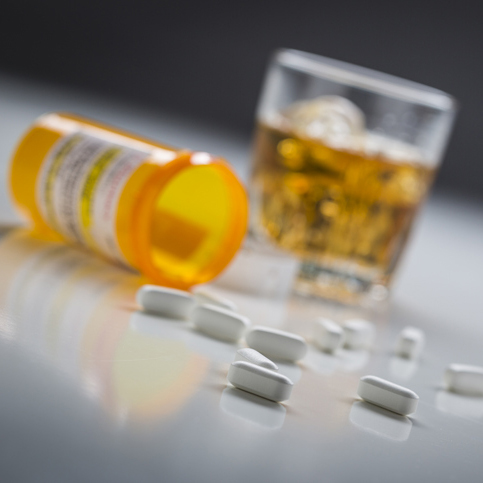
Post-traumatic stress disorder (PTSD) leads to enhanced alcohol drinking and development of alcohol use disorder (AUD). Identifying shared neural mechanisms might help discover new therapies for PTSD/AUD. Here, we employed a rat model of comorbid PTSD/AUD to evaluate compounds that inhibit FK506-binding protein 51 (FKBP5), a co-chaperone modulator of glucocorticoid receptors implicated in stress-related disorders. Male and female rats received a familiar avoidance-based shock stress followed by voluntary alcohol drinking. We then assessed trauma-related behaviors through sleep bout cycles, hyperarousal, fear overgeneralization, and irritability. To evaluate the role of stress and alcohol history on the sensitivity to FKBP5 inhibitors, in two separate studies, we administered two FKBP5 inhibitors, benztropine (Study 1) or SAFit2 (Study 2). FKBP5 inhibitors were administered on the last alcohol drinking session and prior to each trauma-related behavioral assessment. We also measured plasma corticosterone to assess the actions of FKBP5 inhibitors after familiar shock stress and alcohol drinking. Benztropine reduced alcohol preference in stressed males and females, while aggressive bouts were reduced in benztropine-treated stressed females. During hyperarousal, benztropine reduced several startle response outcomes across stressed males and females. Corticosterone was reduced in benztropine-treated stressed males. The selective FKBP5 inhibitor, SAFit2, reduced alcohol drinking in stressed males but not females, with no differences in irritability. Importantly, SAFit2 decreased fear overgeneralization in stressed males and females. SAFit2 also reduced corticosterone across stressed males and females. Neither FKBP5 inhibitor changed sleep bout structure. These findings indicate that FKBP5 inhibitors modulate stress-related alcohol drinking and partially modulate trauma-related behaviors. This work supports the hypothesis that targeting FKBP5 may alleviate PTSD/AUD comorbidity.
